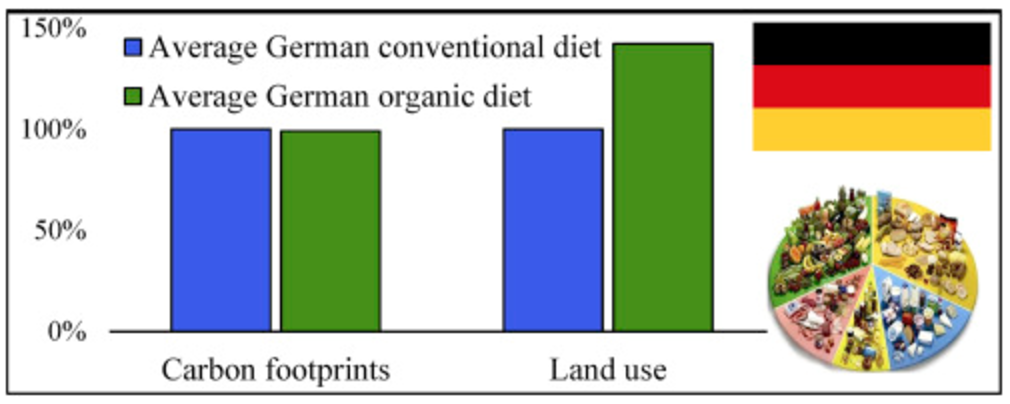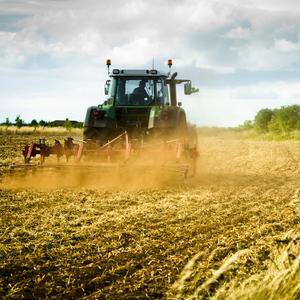People correctly want the food they are putting into their bodies to be good for them and the environment. To satisfy that desire, entire careers have been built extolling the saintly virtues of the "farm-to-table" life that supposedly was simpler and healthier than the conventional, mass-produced agriculture we have today. That's why so many people are willing to pay top dollar for organic food.
Unfortunately, the most common beliefs about organic food are not supported by scientific evidence. The public believes that organic farms don't use pesticides, but they do. People think organic food is healthier, but it's not. Many think organic food is tastier, but in reality, they can't tell the difference between organic food and chicken nuggets from McDonald's.
Another belief is that organic farming is better for the environment. There are many reasons why that isn't true, and a team of researchers from Germany and Sweden has just found another: While the carbon footprint associated with both conventional and organic diets is roughly equal, an organic diet requires 40% more land*.

Their results may seem counterintuitive. People who adhered to a conventional diet consumed 45% more meat than those who consumed an organic diet, but meat consumption is associated with a larger carbon footprint. Why the discrepancy? Because even though people who ate an organic diet consumed more fruits and vegetables (which have a lower carbon footprint), their consumption of pork and poultry offset the carbon savings. As it turns out, organic farms that produce pork and poultry have a larger carbon footprint than their conventional counterparts.
The team's finding that organic diets require more land is in agreement with previous research, in particular a study that concluded that organic farms yield 20% less crops than conventional farms.
Overall, then, organic farming was not better for the environment as measured by carbon emissions. The fact that organic farms require more land than conventional ones strongly suggests that, by this measure at least, organic farming is worse for the environment. Using more land to produce fewer crops is, by definition, inefficient and unsustainable.
*Note: To determine these numbers, the authors compared food consumption data from a German national nutrition survey with life cycle assessment studies that quantify the environmental impact of food production.
Source: Hanna Treu, et al. "Carbon footprints and land use of conventional and organic diets in Germany." J Clean Prod 161: 127-142. Published online: 2017.




